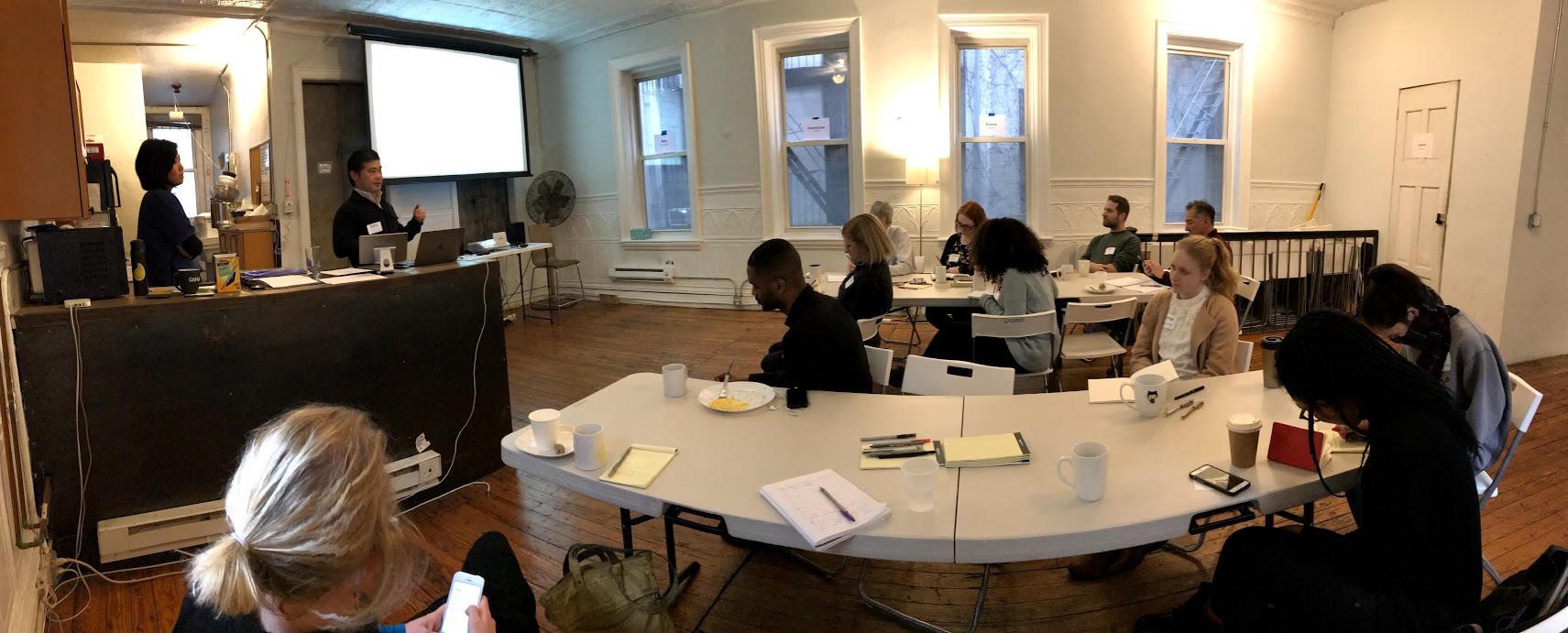How might we scale the impact of our work?
 The Teach the 1K program at Orbital brought together entrepreneurship teachers, coaches and activators. Photo by Nikki Sylianteng
The Teach the 1K program at Orbital brought together entrepreneurship teachers, coaches and activators. Photo by Nikki Sylianteng
In February 2019, we convened Teach the 1K—a gathering of over 40 entrepreneurship educators and activators from a variety of backgrounds—for-profit, non-profit, graduate and undergraduate academia, online and offline, formal and ad-hoc—to teach them how to teach the $1K Challenge.
The $1K Challenge is:
Design, launch and complete a crowdfunding campaign that benefits a community you’ve worked with over the course of the semester. The campaign should raise at least $1,000 from 50 different backers.
―$1K Challenge , Entrepreneurial Design, 2018
We ran the workshop for a few reasons:
First, we were at a crossroads.
After collectively teaching for 7 years, we found ourselves at an inflection point with our work. The $1K Challenge has been a surprising effective and resilient teaching tool for something as difficult to teach as the idea of confronting uncertainty.
We’ve come to believe in its broader importance. While we believe it can be valuable to others, it wasn’t immediately clear to us what scaling up would look like and whether it was something we would want to pursue. Convening a group would be a great way to explore options.
Second, we needed a forcing function.
While we’ve done a lot over the years, we hadn’t been forced to explain it to others. The act of doing so would force not just a process of reflection, but a crystallization of the fundamental concepts and frameworks we use.
The act of contextualizing your own work in a manner that is easy to communicate to others is an incredibly humbling challenge in itself, and so having a specific audience to design and write for made it a doable proposition.
What we needed was an opportunity to get in front of a range of people. Presenting it as a workshop provided a reason for those folks to gather, while simultaneously serving as a forcing function for us to think through how and why the $1K Challenge has worked for us and how to explain it to others.
And so, while designing and running a workshop was a feat unto itself, the bigger win was an articulation of both the need for our work and our pedagogy, as well as the opportunity to be in dialogue with key individuals who served specific communities of interest.